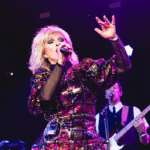Recently, some fans of K-pop group SEVENTEEN are protesting due to an incident where a radio host apparently said a racially insensitive comment at DJ Khaled’s event LIV Miami. Many people interpreted the comment as derogatory and outraged it on social media.

The case occurred while members of the internationally popular South Korean group of pop musicians, SEVENTEEN, were attending an event hosted by DJ Khaled. While some were making friends, for instance, the radio DJ allegedly used the popular phrase in a way its very own listeners and admirers considered degrading to their favorite K-pop group: “WDYM why we drinking with KPOP?” An abbreviation for “What do you mean,” it dismissed the members of SEVENTEEN because of their association with K-pop.
In stark contrast, fans of SEVENTEEN-who as ordinary fans have ardently rallied behind the group without fail-were unmoved by the remarks of the radio host. X (formerly Twitter) erupted in a flurry of anger and upset as fans called out the radio host and demanded an apology.
One of the fans reportedly posted on the microblog, “It is now 2024, and we are still hearing such racist remarks? SEVENTEEN doesn’t deserve this treatment. No one does.” Another added, “K-pop is global now. There’s no excuse for this kind of ignorance.”
Officially, K-pop group SEVENTEEN hasn’t given reaction yet to the issue but fans began to defend their idols. Fans argue that the comment of the radio host did not only disrespect SEVENTEEN but also perpetuated against their Asian brothers and K-pop in general.
This is not the first time that K-pop idols face racially insensitive comments or microaggressions from the West. Many big groups in the business, such as BTS and BLACKPINK, have faced this issue before. While K-pop successfully attracted millions of fans in the West, there will be periods like these when cultural insensitivity and misunderstanding rear their ugly heads.
Many also pointed out that if there had been a better awareness and education about different cultures, the remark of the radio host could have been avoided. “It’s frustrating,” said one fan. “We are living in an era where K-pop has become a significant part of global music culture. To belittle it like this shows a lack of understanding and respect.”
The host of this event, DJ Khaled, has yet to say anything regarding the controversy. Being one of the most recognizable figures in the American music industry, fans have been calling for him to comment on the situation, saying he cannot remain silent – silence could be seen as endorsement or backing.
Some fans are clearly distraught but have been using the moment to educate, not vent. “This is a learning opportunity for everybody involved. We need to get over the stereotypes and begin to understand that music, irrespective of what country it’s coming from, relates people. No room left for these old attitudes.
The fallouts from this incident happen to be the newest examples of hardships K-pop idols face as they make their way through the Western entertainment world. As the genre has taken great strides in proving itself and gaining recognition, moments like these remind us of the imperfections that still exist in mutual understanding between cultures.
The K-pop industry, along with specific groups like SEVENTEEN, has become inextricably woven into global pop culture. Fans have said that the members, like any other artist, deserve the same respect and professionalism at international events as all the people everywhere in the world. “They have done so much to get to where they are, SEVENTEEN,” one fan wrote. “They should not be exposed to this kind of discrimination, even more so since they represent not only themselves but their culture.”
This unshaped comment by a radio host has sparked an important conversation on race, culture, and respect in the entertainment industry and I believe and hope it educates people on how words- even if they were spoken without much forethought- can deeply impact.
All in all, while it is going viral online, it’s obvious that the fans of SEVENTEEN are not leaving things as they are. They’re demanding accountability and respect and change, not only for their favorite idols but for all artists who ever felt discrimination or prejudice in the international entertainment world.


